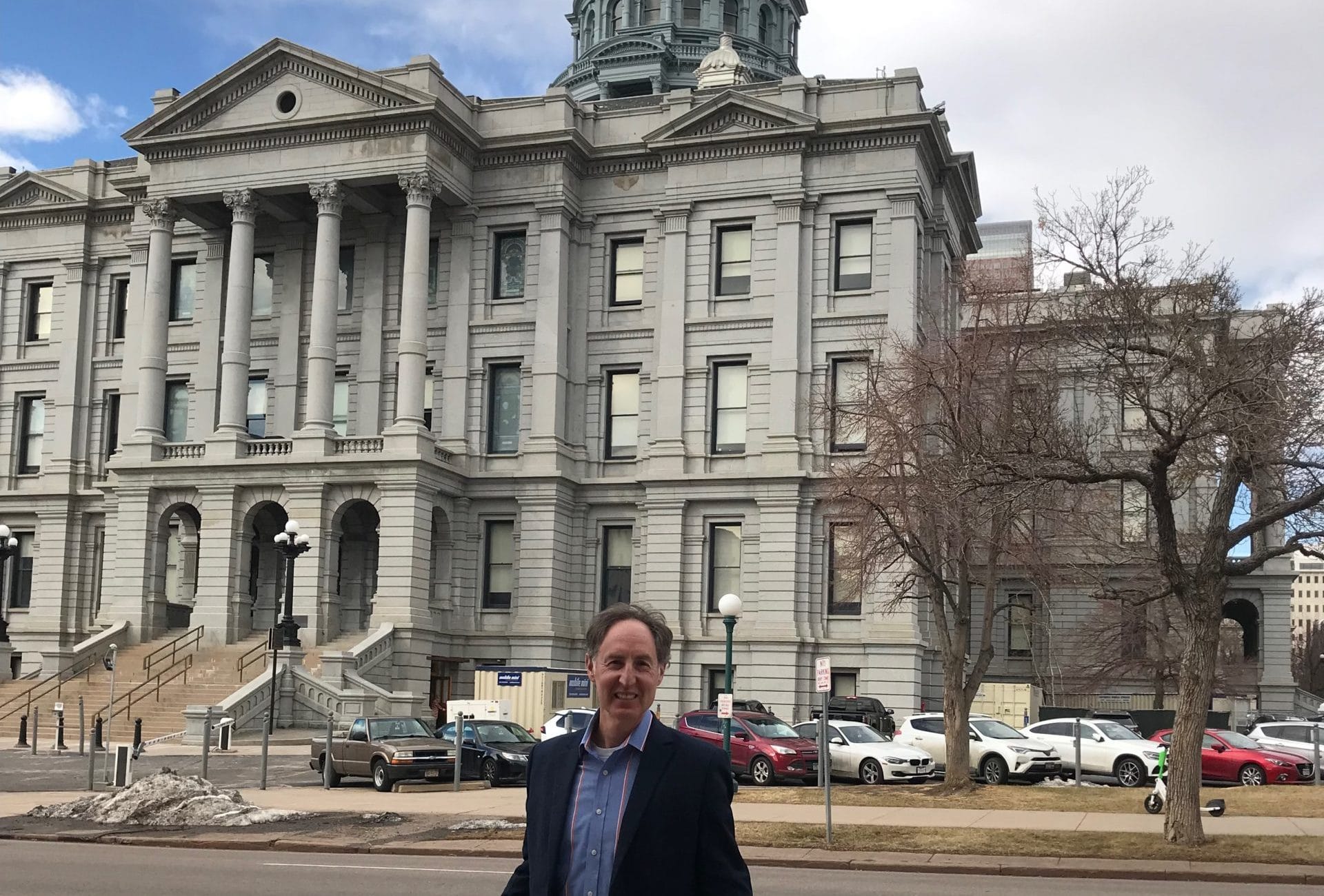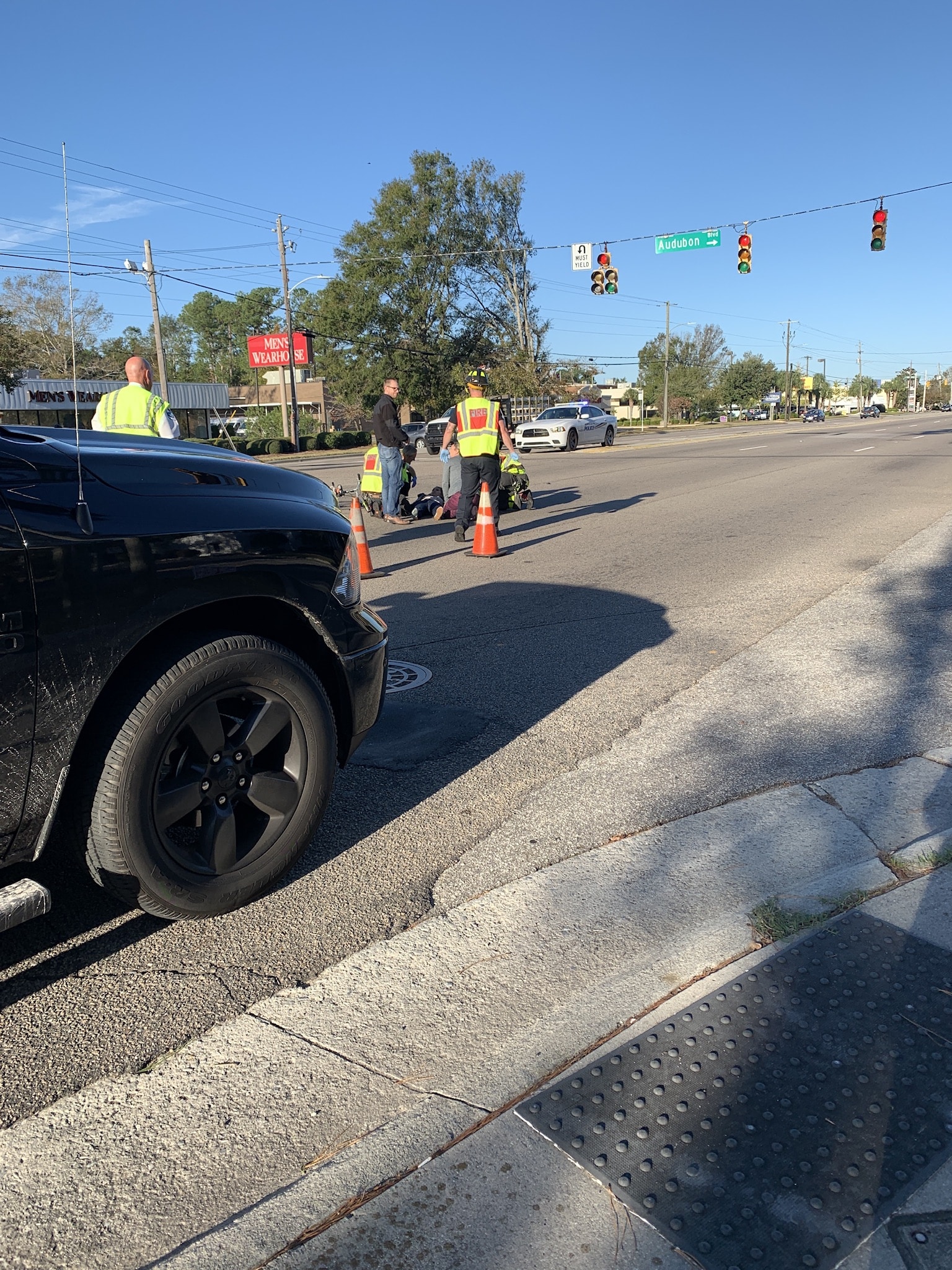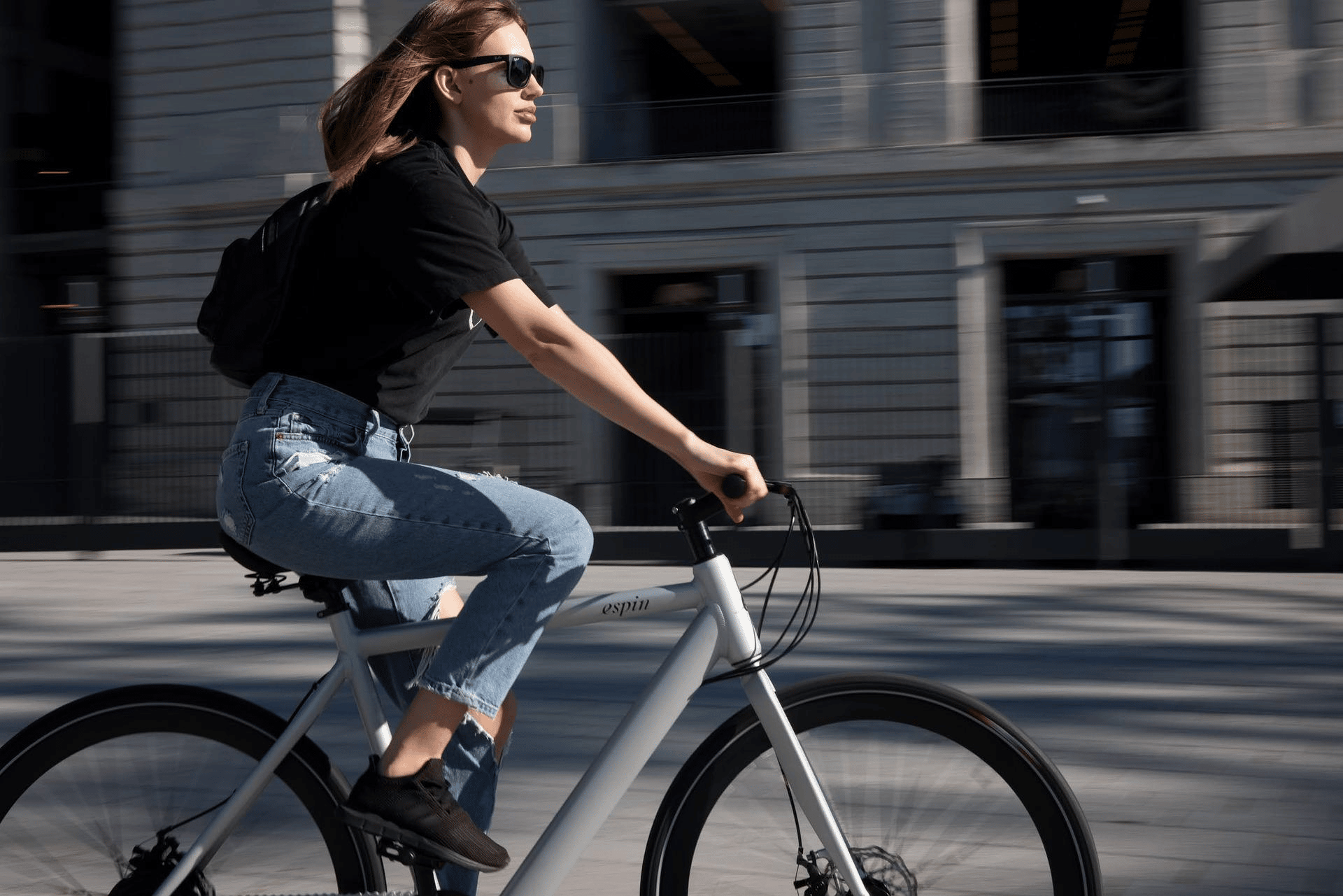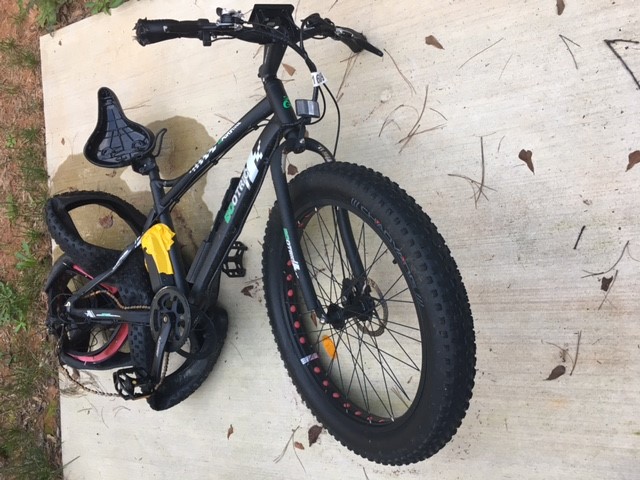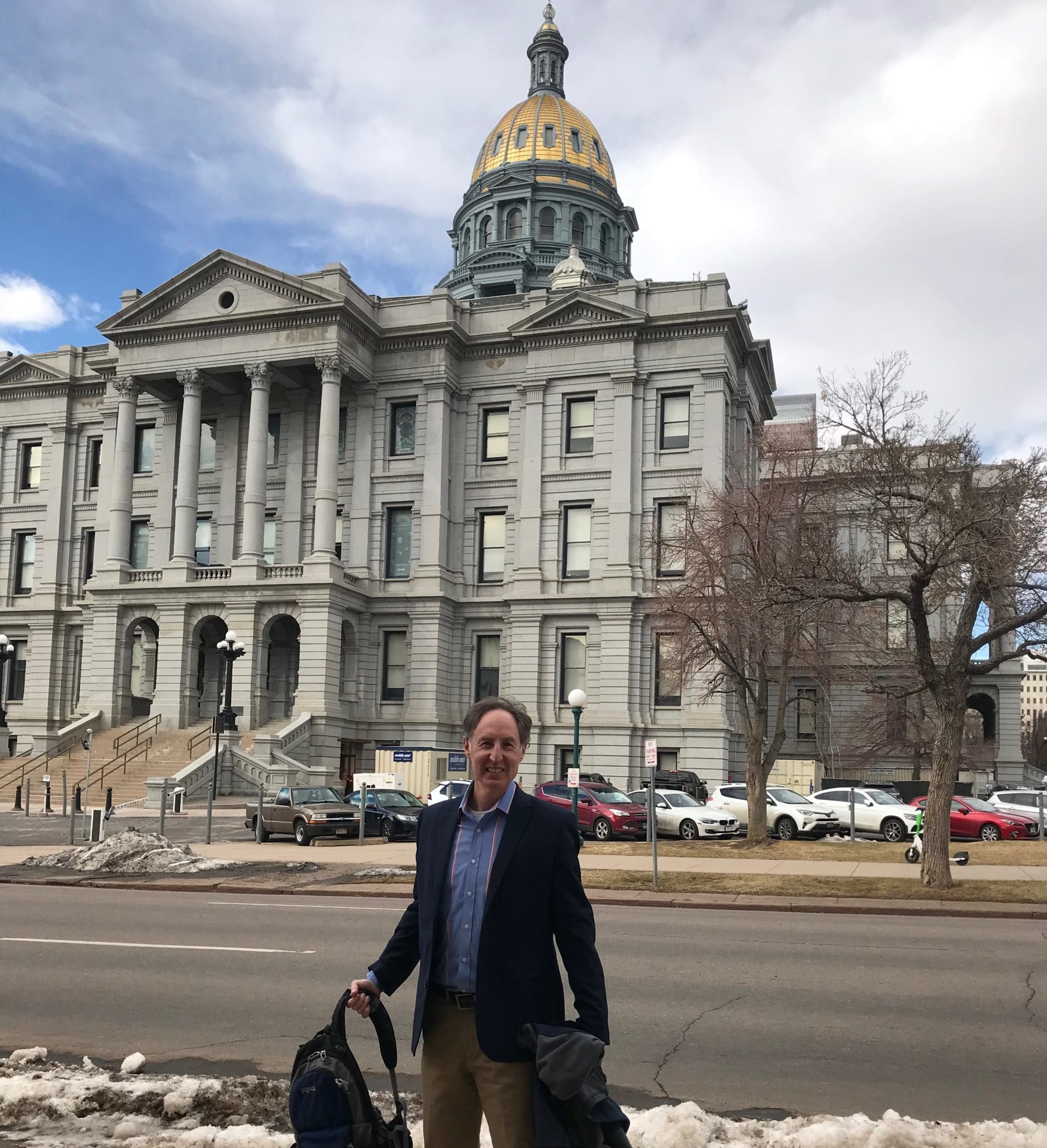Finally, “Stop As Yield” (the much sought after common sense traffic law for bicyclists) is coming to Colorado in 2022, likely July 1st.
Stop as Yield, aka the “Safety Stop”
After the Governor Polis signs the law and the Safety Stop becomes effective, anyone who rides a bicycle or scooter on public roads will not have to lose momentum due to stop signs or wait as long at red lights.
So what difference will the Colorado Safety Stop make? Soon riders will “legally” not have to completely stop at stop signs when there is no traffic present. Red lights that would not change for a bike rider who followed the law and as a result the rider waited and waited – will be a past memory. People who were pulled over by police and ticketed for what they may have thought was a legal activity on a bicycle, can now breathe a sigh of relief.
Stop as Yield: 7 Years in the Making
After about seven years of trying, Colorado’s House and Senate finally passed the State-wide Safety Stop bill (HB22-1028), which is based on the Idaho Stop Law, in 2022. The bill actually had true bipartisan support this year. In fact, it passed the Colorado House 44-20 and passed the Colorado Senate 25-8. The effective date of this law taking effect will be after the Governor signs it and the required waiting period because the new law is needed for our “immediate safety.”
Stop as Yield: The Details
An explanation of the practical changes of the Colorado Safety Stop for a bike rider are as follows:
- When approaching a stop sign, if it is safe to proceed only after slowing to a reasonable speed of 10 miles per hour or less, yielding the right-of-way to any traffic or pedestrian in or approaching the intersection, and after yielding, then the bike riders can continue through the intersection without stopping; and
- When approaching an illuminated red traffic control signal or “red light,” the person on a bicycle must first stop completely at the intersection and yield to all other traffic and pedestrians and only when traffic clears and it is safe, may the rider proceed straight or make a right turn through the intersection or, subject to specified conditions, make a left turn onto a one-way street only.
It should be noted that the bill evolved into the current version in several steps. This law will not only apply to people who ride bicycles but is now flexible enough to cover current and future forms of transportation called “Low Speed Conveyances” which would include electric scooters, one-wheels, e-bikes, and electric skateboards.
Also there were several parts added to the text of the bill. One critical revision is that the new law will only apply to bicyclists age 15 and over. However, for bicyclists, or low speed conveyance riders, under age 15 who are with a parent or legal guardian they can also keep their momentum and benefit from this new law.
This is a change from the current law which was basically an opt-in decision by the city or county to make a Safety Stop the rule of that area. As expected, when rules for bike riders changed from town to town there was confusion. When both bike riders and drivers of motor vehicles understand the laws, they are easier to follow and there is less conflict between road users.
Stop as Yield: My Personal Journey
I say that this law was a long time coming from a personal note, as I have advocated for the Idaho Stop for over 8 years for Bike Law, Team Evergreen Cycling and myself as a person who bikes all over Colorado. While I knew that some mountain towns, like Breckenridge, Aspen, and Summit County, had a successful safety stop local ordinance in place for years before the Colorado Legislature considered changing the Traffic Code to make this a statewide law, I also was aware of the Denver Mayor’s Bicycle Advisory Committee in 2013 which shared a white paper explaining how traffic flows and bicycle commuters would benefit from a safety stop ordinance in Denver.
I testified at the Senate Committee hearings for two years, but the bill did not leave the Transportation Committee. However, there was a glimmer of hope in 2018 for passing a version of the Idaho Stop Law. In 2018 there were enough votes in the Colorado Legislature to pass a watered-down model of the bill which allowed the bike-friendly cities and counties to “opt-in” to a regulatory framework to allow bicycles more freedom at intersections, but I saw this as a weak compromise law. Fortunately, it did serve as a step toward the larger objective, and it energized the bicycling community to keep trying.
Stop as Yield: 7 States Go First
In the meantime, Colorado was bypassed by other states. Arkansas, Delaware, Oregon, Washington, North Dakota, Oklahoma, and Utah all passed statewide safety stop laws. Those other states provided data that was helpful in ultimately passing Colorado’s safety stop bill.
For example, I explained to the Colorado Senate transportation Committee that crashes between bicycle riders and motor vehicles dropped 23% at intersections with stop signs over a 30-month period in Delaware.
I find that statistics like this resonate well with both legislators and jurors alike. The lack of relevant statistics from other states may have been a reason that the law passing in Colorado was previously unsuccessful.
While working to pass the Colorado Safety Stop, there were a lot of different people involved with varying viewpoints. Of course, Bicycle Colorado was a driving force behind this law as it benefits bicycle riders across the State. Andy Kerr, current Jefferson County Commissioner, former Colorado State Senator, and former Colorado State House of Representatives stewarded this bill for about 8 years and made it his personal mission when he was a Colorado legislator. Note, Andy commuted by bicycle when he was the Colorado State Senator and House Member for my district.
Stop as Yield: Equity and Justice
After I gave my own testimony about statistics, safety, and legal issues, I was moved by the testimony from fellow cyclists. In particular, I recall Marcus Robinson’s testimony who explained that he, as a black man riding an expensive road bicycle, was emotionally devasted after he was pulled over by the police who claimed he failed to come to a complete stop at a stop sign and the police accused him of stealing the bicycle that he was riding.
Marcus explained that no minority should be targeted by law enforcement, and he advocated for equality in cycling. I learned that after the stressful police accusation and racial unrest in 2020, Marcus Robinson and Neal Henderson started Ride for Racial Justice, a non-profit in Denver which advocates for Diversity, Education, Leadership & Community.
This Safety Stop bill will unify bike laws across Colorado, and make the roads safer for people of color at the same time.

Colorado bicycle accident lawyer Brian Weiss is an accomplished trial lawyer with over 26 years of experience, and he has tried over 40 jury trials. Aside from having been in a bike crash himself, Brian has counseled over 200 people who have been in bike crashes.
Download and share Brian’s E-Book: The Rules Of The Road For Colorado Cyclists.



